-
Home
-
Shop
New -
Explore
-
Support
-
Track Order
Feb 08, 2023
Author:Jackson Watson
You’ve probably heard the wet, down-in-the-throat “Glurk” sound made by cats when they’re about to vomit if you’ve spent enough time around them. Cats can throw up after drinking water for a wide range of reasons. Here we will be discussing the top 5 causes why cat throws up water.
The following are the main causes:
Your cat could guzzle water if you give it to it too rapidly. If your cat routinely “scarfs and barfs” or has intestinal allergies, they may be throwing up partly digested or undigested food.
Additionally, just like in humans, a cat’s stomach produces a variety of gastric secretions in addition to hydrochloric acid to aid in the digestion of food.
However, the buildup of juice and acid can irritate the stomach and cause your cat to throw up after drinking water if they skip a meal or are not fed on time.
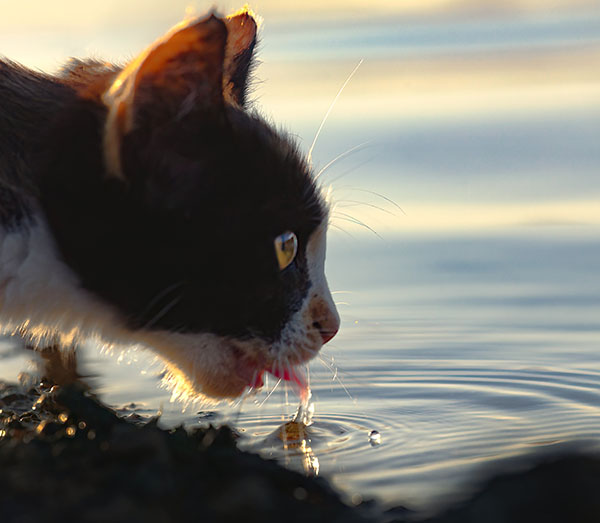
To solve this problem, install a water fountain and establish good drinking practices to prevent your cat from throwing up water. The WOpet pet water fountain is strongly suggested for this. This fountain can effectively encourage your cat to drink water with flowing water. Its thickened 34mm filter helps double the purification and provides the freshest water for your cat.
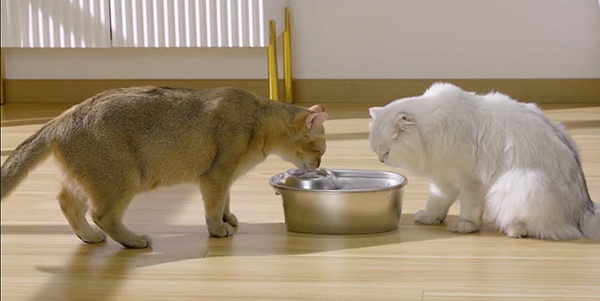
Too much time passes between meals is the most frequent cause of this kind of vomiting (not feeding frequently enough). The cat’s stomach acid increases as it becomes more and more ravenous. The excess stomach acid will cause the cat to vomit frothy yellow bile if there isn’t any food available for it to absorb and digest. Your cat could vomit clear liquid when its eating schedule is altered, if it skips a meal, or feeds later than usual. You might also have changed your cat’s food too rapidly.
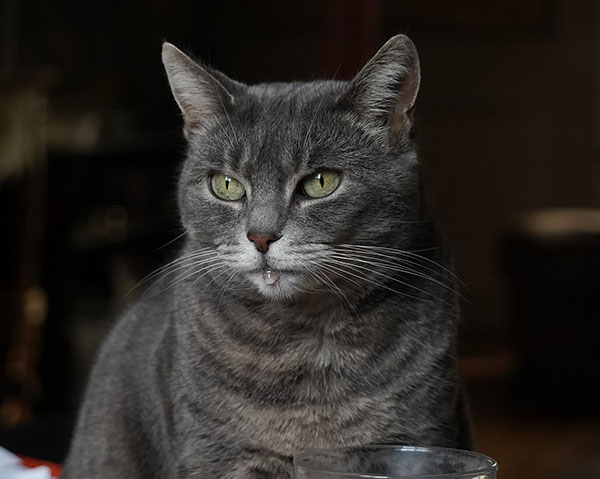
As previously said, ensuring that an adult cat is fed at least three times per day is crucial, even if these meals are spaced only a few hours apart. Because they are high in animal fat and protein and low in carbs, freeze-dried meals provide ideal snacks in between meals if giving fresh food three times per day is not practical. Feed your cat more frequent, smaller meals. Use the automatic feeder to plan your meals wisely.
Before a hairball, cats frequently throw up clear liquid. It’s crucial to remember that while a cat occasionally throwing up water with a hairball can be normal and not cause for alarm, hairballs shouldn’t be common, uncomfortable, or challenging for your cat to pass. An odd hairball is nothing to worry about, but regular hairballs may be a sign of deeper problems that need to be addressed.
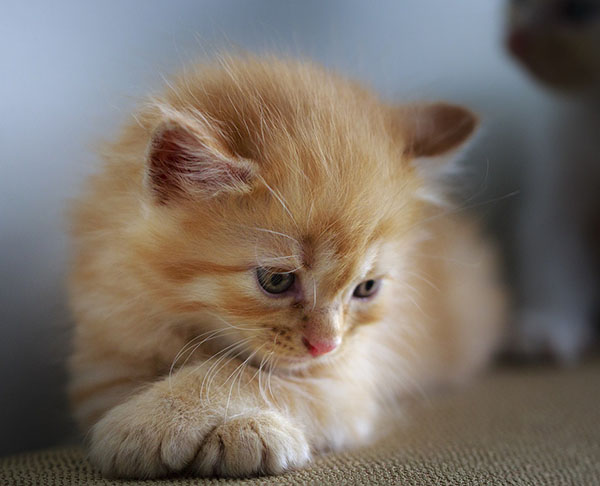
There are over-the-counter nutritional supplements that can help with cat hairball prevention. These supplements come in chewable or gel form. By adopting a regimen of regular brushing and establishing your cat’s comfort with brushing, you may get rid of any loose fur in their coat that they could otherwise consume.
Most cats won’t display symptoms of infection, but those with severe roundworm infections frequently vomit, lose weight, have dull fur, and appear potbellied. If the roundworms enter the lungs, the cat might cough. Your cat may vomit or urinate with adult roundworms in it. This is the main reason your cat throws up the water.
Kittens typically have a potbellied appearance due to the roundworms, which gladly absorb the host’s food and can cause wastefulness and general ill health. Consult your veterinarian and your doctor if your cat has roundworms. Call your veterinarian right away if you see spaghetti-like threads in your cat’s vomit.
Your cat has likely irritated their stomach with anything they’ve eaten if they tend to get into things it shouldn’t. When this occurs, in addition to seeing vomiting blood and/or bile, you might also witness throwing clear liquid. Indigestion in cats can cause them to throw water, white foam, and yellow foam.
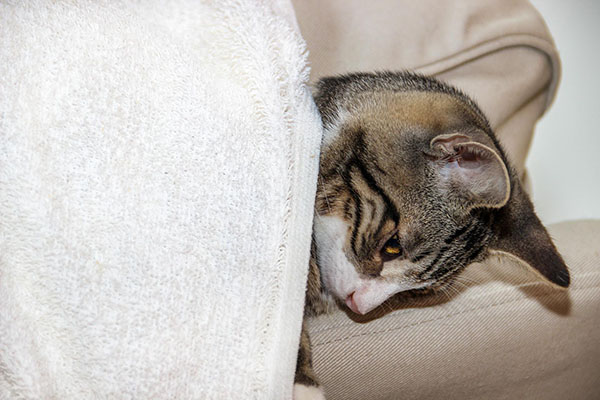
Gastroenteritis is the medical term for inflammation of the gastrointestinal tract, which also includes the stomach and intestines. Your cat may also be exhibiting a decrease in appetite, a melancholy temperament, lethargy, or dehydration. Visit your veterinarian, who will give you instructions if your cat is vomiting because of gastritis.
Adjustments in dietary requirements bring on metabolic disorders. No matter the meal, regurgitation might happen if your cat eats too quickly. However, this issue usually arises when there is an excessive gap between meals. The recommended number of small daily meals for cats is 3, although they can thrive on up to 4. One or two larger meals per day can encourage a cat to consume its food faster than its digestive system can process it.
Additionally, this problem may result in “hunger pukes,” which are only digestive secretions and are typically clear, yellow, or light brown.
Regurgitation can also result from free-feeding, which involves letting the cat graze all day long. In cats with constant access to food, the metabolic system as a whole is kept in good working order since the digestive system never reaches a point where hunger would be induced.
It’s true that your cats talk to you and tell you about their troubles, but sometimes they do it in awkward ways. Throwing up water, frequently stomach juice indicates that the cat is bringing up fluid from the digestive tract. Sometimes, if the cat is throwing up shortly after consuming a lot of water, she will also vomit clear liquid. It’s possible that your cat’s occasional vomiting doesn’t mean anything is wrong. During grooming, many cats will pass hairballs made from their fur, although this shouldn’t happen more than a few times per month. This is why it’s so vital for you to pay attention to what’s typical for your cat.
Popular Post

Why Does My Cat Cough After Drinking Water? 8 Potential Reasons
Mar 13, 2023
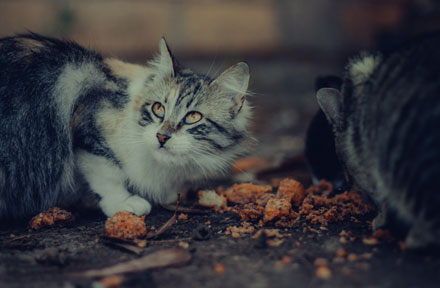
My Cat Only Eats A Little at A Time - What to Do?
Feb 27, 2023

What to Feed a Sick Dog With No Appetite? [2024 Guide]
May 16, 2023

Why Is My Dog Being Destructive All of A Sudden?
Feb 04, 2023
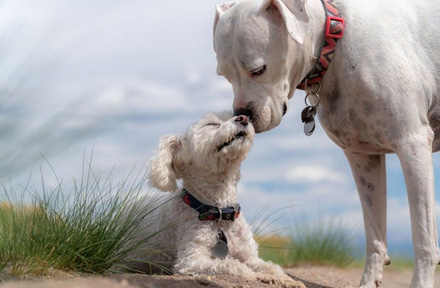
Do Puppies Miss Their Moms
Feb 11, 2023
Copyright © 2024 WOPET. All Rights Reserved.